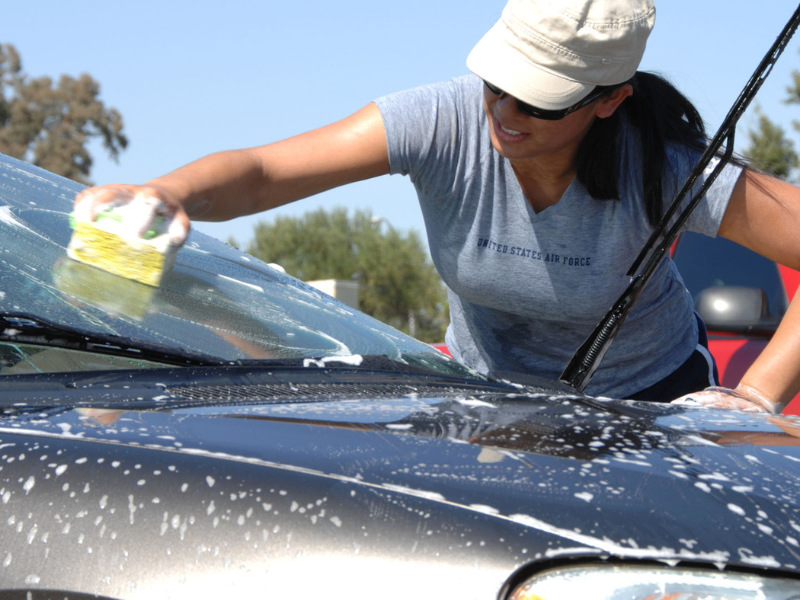
We are researching car washes as a significant source of PFAS.
You might have seen or heard of PFAS in the news lately, and for good reason: This class of “forever” chemicals can be found many places, from household dust and food packaging to soil and drinking water. We’re concerned about PFAS because these chemicals don’t break down in the environment. Exposure to PFAS could result in reproductive and child development problems, increased cancer risk, and reduced immune function — just to name a few.
We’re working to reduce exposures to PFAS
PFAS are used to create products that resist heat, oil, stains, grease, and water. Last year, the Washington State Legislature directed us to look at PFAS in specific consumer products under the Safer Products for Washington law. We’ve started our research and have identified the following types of products as significant sources of PFAS use and exposure:
- Apparel and gear
- Firefighting personal protective equipment
- Cleaning products — including products to wash cars
- Waxes — including floor waxes and polishes, car waxes, and ski waxes
- Nonstick cookware and kitchen supplies
- Hard surface sealants
After research and outreach efforts, we could decide to restrict PFAS in these products, require companies to report when they use specific chemicals, or determine we want to continue researching use of PFAS in these products.
Hear from our experts and share your thoughts
Our scientists and economists will share background information, research into product categories, and preliminary conclusions in an August 10 webinar. Join to ask questions and tell us your ideas.
Thursday, August 10, from 9:00 a.m. to 12:00 p.m. PDT
- Join the Zoom meeting
- Meeting ID: 859 9482 7905
- Call in: +1 253 215 8782
If you can’t make the webinar, send feedback and questions to SaferProductsWA@ecy.wa.gov. To get updates on our Safer Products for Washington work, subscribe to our Safer Products for Washington email list.
Safer Products for Washington is designed to reduce human and environmental harm by restricting certain toxic chemicals when safer chemical alternatives are available. Where a safer alternative hasn’t been identified, Ecology can require manufacturers to report the use of these chemicals. For more information, visit ecology.wa.gov/Safer-Products-WA.

